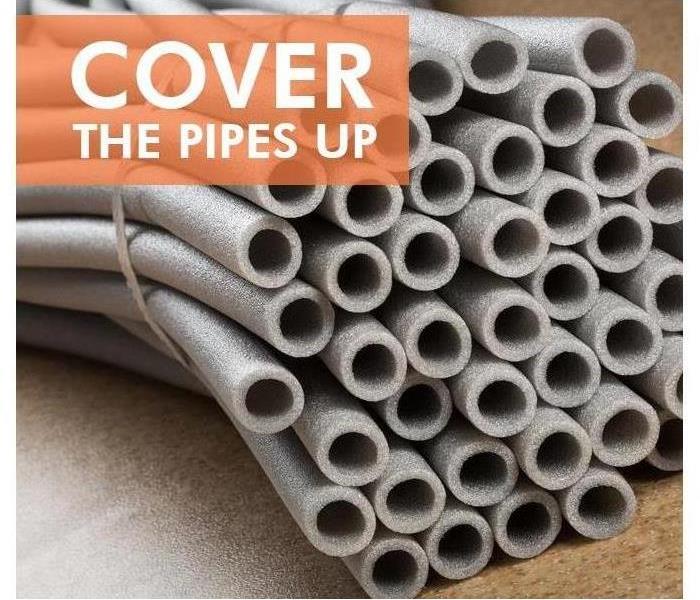How To Avoid Frozen Pipes
2/8/2021 (Permalink)
Heavy rain isn’t the only source of storm damage; frigid winter storms can also lead to flooding and other serious water damage. For example, if the plumbing throughout your property isn't insulated, installed, or maintained properly, you could end up with a burst pipe.
Which Pipes Are Most Likely To Freeze?
Your sprinkler lines, supply lines to swimming pools, or outdoor hose bibs
Exposed lines in unheated areas, such as crawl spaces and attics
Pipes installed against exterior walls, especially without insulation
Plumbing lines in uninsulated kitchen and bathroom cabinets
When temperatures drop and water freezes, the developing ice expands and puts added pressure on pipes. Even very strong pipes will crack or burst under the pressure as standing water expands while freezing.
Insulate Exposed Pipes
One of the best ways to protect your pipes is to add insulation around exposed pipes. Be sure to check inside cabinets, along exterior walls, in the garage, and in the basement. If you don't know where the pipes run, it's best to hire a plumber to help. After the construction of your building is complete, it can be hard to track down the original plans, and there's no guarantee that the contractor followed the plans precisely. A plumber, however, can usually let you know within an hour or two where the pipes are located.
Drain Water Before Temperatures Drop
The next step in protecting against a burst pipe is draining water from all of the pipes that aren't used during the winter, such as swimming pool supply lines and the sprinkling system. After draining hoses, wrap them up and store them until warmer weather. Don't put antifreeze into any of your water supply lines; it is very dangerous to humans, animals, and the environment.
Catch Damage Early
If you see condensation around your windows, on the walls, or on interior pipes, contact a water damage mitigation and repair team as quickly as possible. You may avoid serious damages if you catch a developing crack or minor leak before it becomes a burst pipe. If you do need to deal with a frozen pipe, SERVPRO professionals work quickly to keep damage under control.




 24/7 Emergency Service
24/7 Emergency Service
